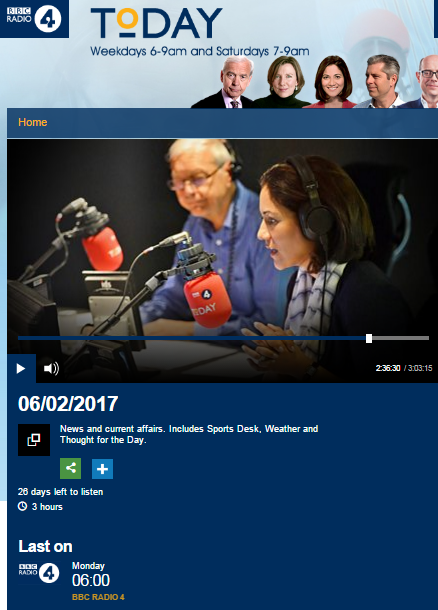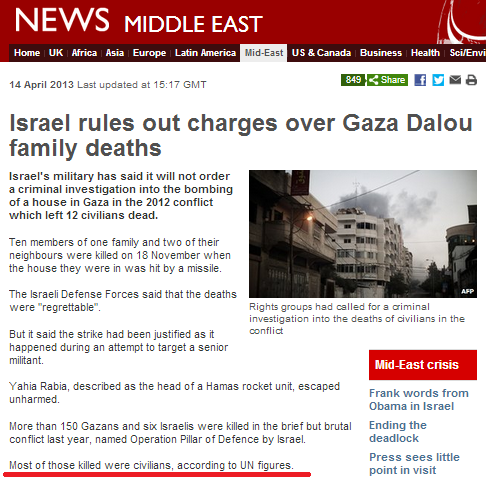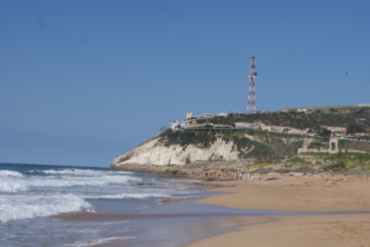The February 6th edition of the BBC Radio 4 programme ‘Today’ included a long item (from 02:36:48 here) ostensibly concerning the Israeli prime minister’s visit to London on that day which was introduced by presenter Nick Robinson as follows: [emphasis in italics in the original, emphasis in bold added]
“The Israeli Prime Minister Binyamin Netanyahu is in London today for a meeting with Theresa May. The prime minister is likely to restate Britain’s opposition to building settlements in the occupied Palestinian territories; this at a time when American policy towards Israel is undergoing a dramatic shift. Barack Obama and Binyamin Netanyahu loathed each other. Mr Trump, in contrast, has vowed to be Israel’s best friend. He’s refused to condemn the building of settlements, he’s promised to move the US embassy from Tel Aviv to Jerusalem, going against decades of US foreign policy. From Jerusalem, Mark Lowen now reports.”
The ensuing audio report from Mark Lowen was very similar to his filmed report seen on BBC World News television in late January, including visits to the same locations and promotion of the same unbalanced messaging.
Listeners heard a recording of Obama claiming that “the growth of the settlements are [sic] creating a reality that increasingly will make the two-state solution impossible” followed by Lowen’s assertion that:
“The bond with Barack Obama plummeted as he increasingly saw the Israeli government as an impediment to peace. In his last press conference Mr Obama alluded to his final blow: allowing a resolution to pass at the UN against settlements, which violate international law.”
Lowen went on to present a partisan interpretation of the significance of the proposed relocation of the US embassy:
“Donald Trump has taken a far more pro-Israel position. He’s promised to move the US embassy from Tel Aviv to Jerusalem, recognising Israel’s disputed claim over the whole city, although he is now lowering expectations on the issue.”
Reporting from Beit El, which he described as a “settlement on land the Palestinians want for a future state”, Lowen told listeners that:
“It looks like a regular suburb: seven thousand homes, a religious school and some buildings bearing the name Friedman – the family of David Friedman, the likely next ambassador here. He, Mr Trump and the president’s son-in-law have donated to Beit El.”
Once again, he did not inform listeners that the said Trump donation was apparently made back in 2003. Lowen also made a point of telling one of his interviewees from Beit El that “the Palestinians say it is also their territory; their ancestors also lived here”.
As was the case in his filmed report, Lowen visited the PLO’s Hanan Ashrawi in Ramallah and listeners heard the same unquestioned portrayal of the supposed consequences of relocation of the US embassy.
“The language that we’ve heard, coming out as though Israel can do no wrong and that the US not only will be the patron of Israel but in many ways will be the partner of Israel in its illegal activities – is serious cause for alarm. If the US moves its embassy then there’s no reason to talk about any peace solution because it’s finished; it’s done for.”
Lowen’s audio report also included commentary from “the plot of land in Jerusalem that’s long been ear-marked for a potential US embassy” but again with no clarification of its position in relation to the 1949 Armistice lines.
Following Lowen’s report, the item moved on to a conversation with Jeremy Bowen in which he repeated some of the same themes promoted just minutes earlier on BBC Radio 5 live.
Robinson: “This issue of settlements: on the surface it appears that Trump is endorsing them and yet only the other day we were hearing that they ‘may not be helpful’ – in quotes. So is it quite as it seems?”
Bowen: “Well when they said ‘may not be helpful’ it was still a softening on what had been the long-standing American position – that they were an obstacle to peace.”
Neither Robinson nor Bowen provided listeners with an accurate representation of the statement put out by the White House press secretary on February 2nd which clearly used the phrase ‘may not be helpful’ in a specific context.
“While we don’t believe the existence of settlements is an impediment to peace, the construction of new settlements or the expansion of existing settlements beyond their current borders may not be helpful in achieving that goal.”
Bowen continued:
Bowen: “I think the…until there is evidence to the contrary in terms of something a bit stronger than that – and I think that next week Netanyahu’s going to go and see Trump in Washington and, you know, we’ll see what comes out of that. But until there’s something really to the contrary, there is a distinct impression that Trump is prepared to give Mr Netanyahu carte blanche to go ahead with what he wants to do. But we’ll see…”
Robinson: “And that raises real…real questions for Theresa May. We saw in the UN the other day that Britain changed her historic position on settlements to try to get closer to Mr Trump.”
Of course the British prime minister’s remarks were not made “in the UN”, did not ‘change’ Britain’s “historic position” in the least and Robinson’s allegation of motive is at best highly debatable.
Bowen: Yes well, Britain supported a resolution in the dog-days of the Obama administration…err…which…err…condemned settlements and which the Americans very unusually abstained on; they didn’t veto. After that, even though it was a resolution that Britain had voted for and was also deeply involved in the drafting and presentation of, after that Number…Downing Street said that it was something that they…effectively Prime Minister May criticised Mr Kerry, then the Secretary of State’s condemnation of the expansion of settlements. And the Americans said well hang on a minute; that’s been British policy for a long time.”
Once again we see Bowen misleading listeners with an inaccurate representation of Mrs May’s remarks.
“[Downing Street] said her criticism was directed at Mr Kerry’s decision to attack the make-up of the Israeli government.
“We do not… believe that the way to negotiate peace is by focusing on only one issue, in this case the construction of settlements, when clearly the conflict between the Israelis and Palestinians is so deeply complex,” Mrs May’s spokesman said.
“And we do not believe that it is appropriate to attack the composition of the democratically elected government of an ally. The Government believes that negotiations will only succeed when they are conducted between the two parties, supported by the international community.”
The spokesman added: “The British Government continues to believe that the only way to a lasting peace in the Middle East is through a two-state solution. We continue to believe that the construction of settlements in the Occupied Palestinian Territories is illegal.”
Moreover, listeners were then treated to some domestic political ‘analysis’ from Bowen based on his inaccurate misrepresentation:
Bowen: “Ah…I think that Britain has been floundering a bit on Middle Eastern policy in the last couple of months because there’s been a lack of consistency.”
Robinson: “In part is that not because, beyond the small print of this or that UN resolution, the really big stakes here are these, aren’t they: is Trump going to call time, along with Netanyahu, on the goal of Western foreign policy for decades: a two-state solution, a Palestinian state?”
Bowen: Well all…yes…I mean he might do that or it might not be quite that abrupt. He might just simply pay lip service to it while allowing things to happen which would make it impossible. There are plenty of people who believe that a two-state solution is now impossible anyway because of the volume of settlement, because of the way that Jewish settlements have…have encircled that part of Jerusalem that the Palestinians want for a capital and that Mr Netanyahu himself – who’s been prime minister for an awfully long time – while he says he wants a two-state solution, he does everything he can to make sure that it doesn’t happen.”
Robinson: “Jeremy Bowen…”
Bowen: “So there are plenty…so there are lots of people now talking about a one-state solution which might be tough for both sides.”
Robinson: “Jeremy Bowen; thank you very much indeed.”
As we see, twice on the morning of February 6th domestic audiences listening to two different BBC radio stations were misled by Bowen with regard to a statement made by their own prime minister.
Moreover, it is abundantly clear that the occasion of the Israeli prime minister’s visit to London was in both cases used as a hook for yet more promotion of the now standard politically motivated narrative according to which the two-state solution is solely endangered by Israeli actions.
Were Jeremy Bowen truly committed to providing BBC audiences with accurate and impartial information which would meet the corporation’s remit of enhancing “UK audiences’ awareness and understanding” of this particular international issue, he of course would not have concealed from view no less relevant issues such as Palestinian terrorism, Palestinian Authority incitement, Hamas’ refusal to accept the two-state solution, the PA’s refusal to recognise Israel as the Jewish state and the Hamas-Fatah split.
Related Articles:
‘What’s he doing here?’ – BBC 5 live breakfast on Israeli PM’s London visit
BBC continues to push its monochrome US embassy story




